‘The Penelopiad’ // Javeenbah Theatre
‘The Penelopiad’ was transformative.
What possible relevance can the oldest extant work of western literature, Homer’s ‘Iliad’, and it’s sequel, ‘Odyssey’, have in 2019? Well, if the Javeenbah Theatre’s production of Margaret Atwood’s ‘The Penelopiad’ is anything to go by, the answer is ‘a lot’.
‘The Penelopiad’ is based on Atwood’s novel of the same name, which itself is a literary transformation of Homer’s original epic poems. The play tells the story of Penelope, wife of Odysseus, and her experiences during the decade-long Trojan War of ‘Iliad’ and Odysseus’ decade-long journey home of ‘Odyssey’. Famously faithful to her marriage vows, Penelope waits for twenty years as Queen of the Kingdom of Ithaca for the return of her husband.
To survive, she must outwit those who would see her harmed, such as a bevy of suitors who plan to rape their way through the Kingdom to eventually claim her as their own. The story is narrated by Penelope of Hades, the older, long-deceased version of the heroine. She introduces us to other characters of Greek mythology who become key players in the story, such as Helen of Troy and Telemachus.
In typical Atwoodian style, ‘The Penelopiad’ is a work of irrefutable feminist excellence (though Atwood herself prefers to view her writing through the lens of ‘social realism’). The voice that it gives to a female hero so marginalised by history is powerful and necessary. In a world where female voices are still shunned and ridiculed by those in power daily, it is undeniably relevant.
And it may well be the best thing to hit a Gold Coast stage this year.
The laziest attempt at female empowerment that we see too often in theatres, or even in Hollywood, is the simple unmotivated ‘gender-swapping’ of existing male characters. While it can be argued that such a move puts women front and centre, it doesn’t succeed in putting the experiences of women front and centre, unless the characters are significantly re-written in line with the gender revision. Happily, ‘The Penelopiad’ is not just “Odysseus, but a woman!” (in fact, in this production Odysseus is the only role played by a male actor).
Rather, the focus here is the uniquely female experiences of Penelope. Her hardships are thrust upon her because she is a woman, and she overcomes them through sheer force of will, wit and determination as sadly so many women must, even in 2019. She is not afforded the chance to pick up a sword and deal with her problems as her husband might, and that is why the production rings so true.
Every directorial choice made here is the right one. In the style of the original Greek theatre, from which the first plays were born and the first actor, Thespis, emerged, much of the story is told through monologue and chorus. But at no point does this feel repetitive, unnecessary or monotonous. Director Kaela Grey and choreographer Kylie Davis-Davenport have stylised the delivery in a way that is fluid, symbolic and gripping. The chorus moves with a pulsing synchronicity that does not let the audience look away.
The set is minimalist and sparse (oh, at last) with just enough décor to aid the story at poignant junctures. There is a spattering of thematic elements, such as gold leaf and nautical rope, but nothing is unnecessary. This allows for absolute fluidity in the ever-changing times and places through which the story takes us. Key locations are represented, rather than rebuilt, using simple props and the actors’ bodies. The infamous scene of Odysseus tied to the mast of the Homeric Galley to resist the lure of the Sirens, for example, is an image that emerges from the centre of the chorus using only themselves, canvas and ropes, before being enveloped again in seconds. The ingenuity of this device means that audience members never find themselves sitting in darkness waiting for a scene to begin (side note, blackouts are the death of theatre and there is never an acceptable excuse for them) and instead, they, not unlike Penelope, are held captive throughout the entire story.
Something must also be said of the expertly composed score by Rachel Love. The text provides the lyrics, but Love’s compositions are haunting and memorable, and add a dimension to the performance that cannot be overstated.
Leading the performance are Hannah Collins and Naomi Thompson as Penelope of the Living and Penelope of Hades respectively. Collins is a captivating performer. Many of her lines are narrated by Thompson, but she is able to deliver so much through her silence and tell an entire story in a simple look. Thompson, on the other hand, must do the opposite: narrate the emotional turmoil of the character without the opportunity to interact with anyone else on stage. She is a more hardened Penelope, the one who has lived it all and died, and the balance between the two of them works remarkably well. They complement one another, but do not rely on one another. They are not two halves of a single role, but two embodiments of it.
Dom Bradley is Odysseus. Fresh from his excellent portrayal of Eddie Lyons in Javeenbah’s hugely successful ‘Blood Brothers’, Bradley reminds us with this performance that he is one of the region’s most versatile actors. As the only male amongst the cast, he could easily stand out and rob the show of it’s meaning. But he plays Odysseus with a deliberate subtlety, as neither hero nor villain, but with both a charm and a creepiness that make him a perfect catalyst for central conflicts of the narrative. Not many actors could deliver such a considered performance in such an easily ostentatious role, and it speaks to Bradley’s immeasurable talent that he pulls this off.
The remaining performers form the chorus, each stepping out at various points to embody particular pivotal roles before melding seamlessly back into the ensemble. The largest such role is Eurycleia, Odysseus’ scheming wet-nurse, played by Michelle Watkins. Watkins had better hope her audiences can separate the actor from the role, as she successfully invites them to detest the character immediately through her smug and manipulative interpretation.
Other standouts from the chorus include Lia Corder as Helen of Troy, who delivers both comedy and tragedy with unwavering dedication, Megan Frener as the Oracle and Laura Coulton as Penelope’s mother, both of whom breathe sincerity into every moment they are onstage, and Sarah Hunt as Penelope’s father and Peta Simeon and Odysseus’ father, who deliver considered and unobtrusive comic moments, perfectly timed to allow the audience to breathe. Unfortunately, on occasion the different levels of experience amongst the actors who make up the chorus is noticeable, as some offer less energy and commitment to moments that are otherwise perfectly synchronised.
Despite being a literary transformation of a story that is several millennia old, ‘The Penelopiad’ is a show that certainly belongs in 2019. Its messages are as important now as they ever were, and as such this play, and particularly this version of it, should be viewed by everyone.
‘The Penelopiad’ runs until June 8, 2019. Tickets are available at http://javeenbah.org.au.




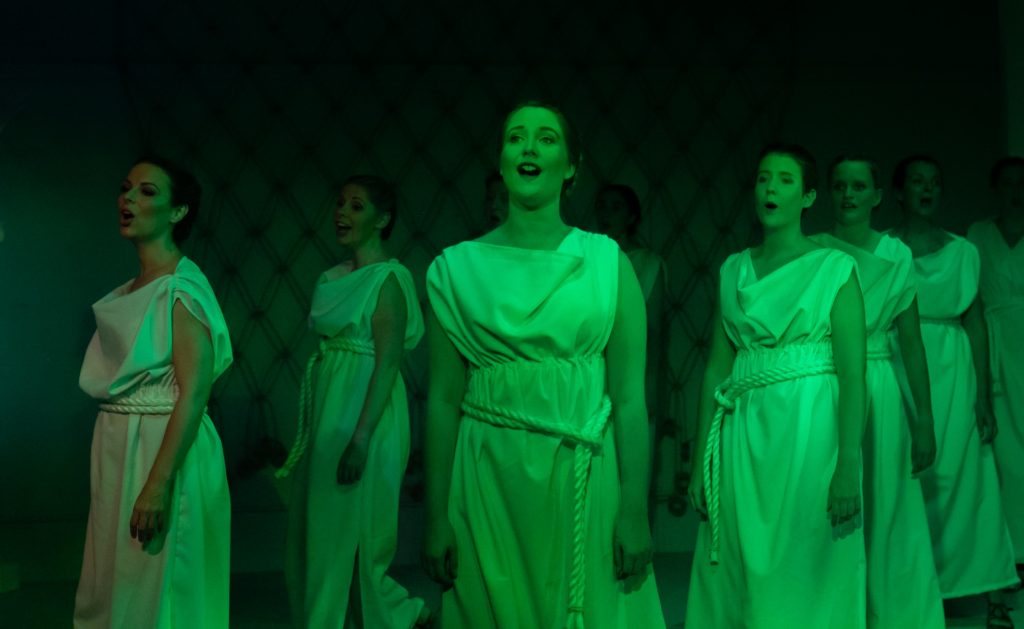
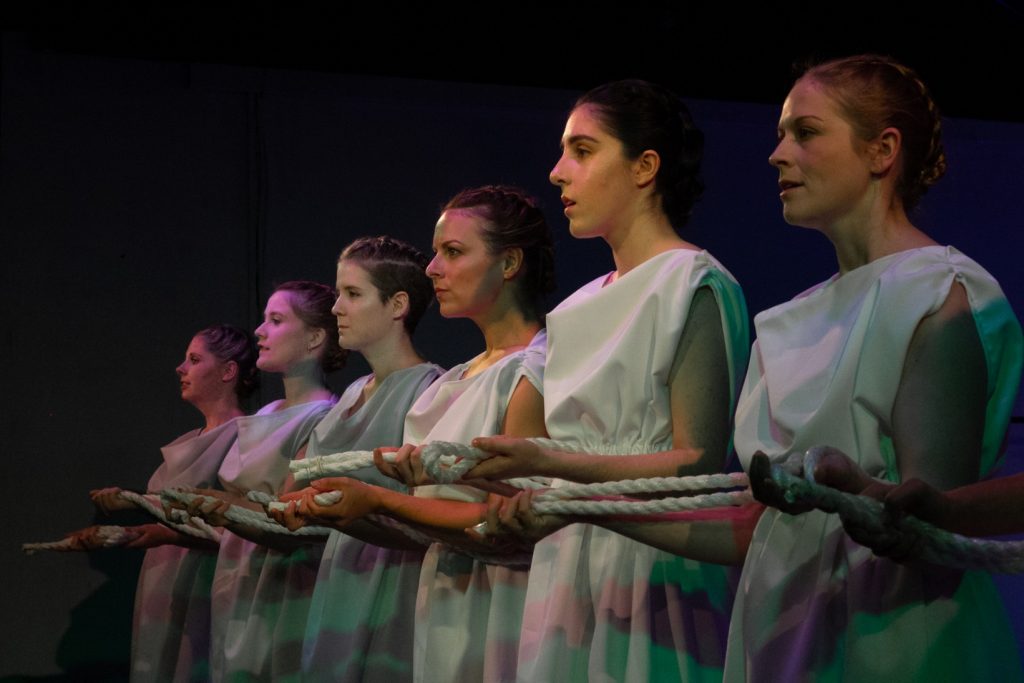
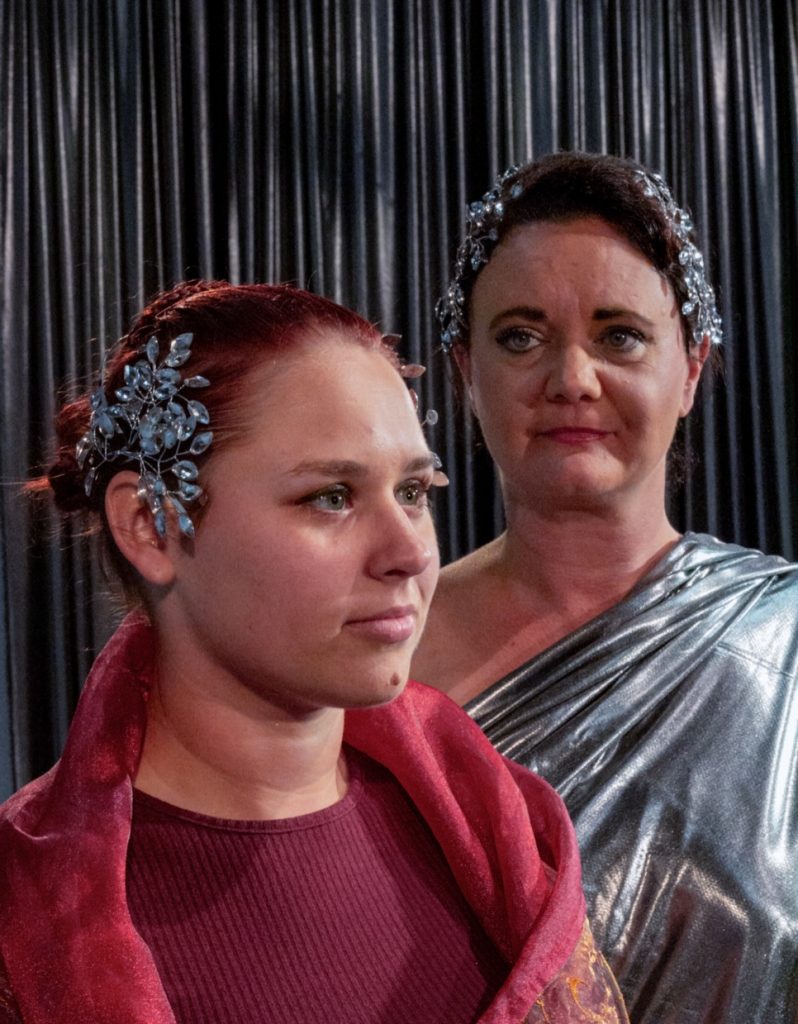
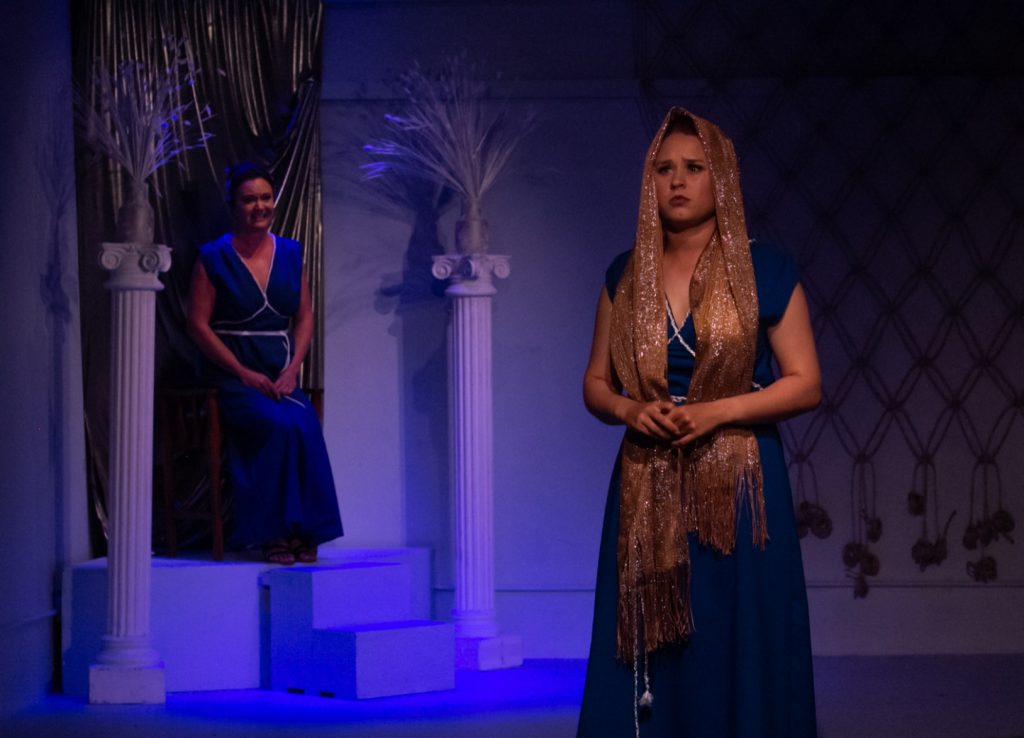
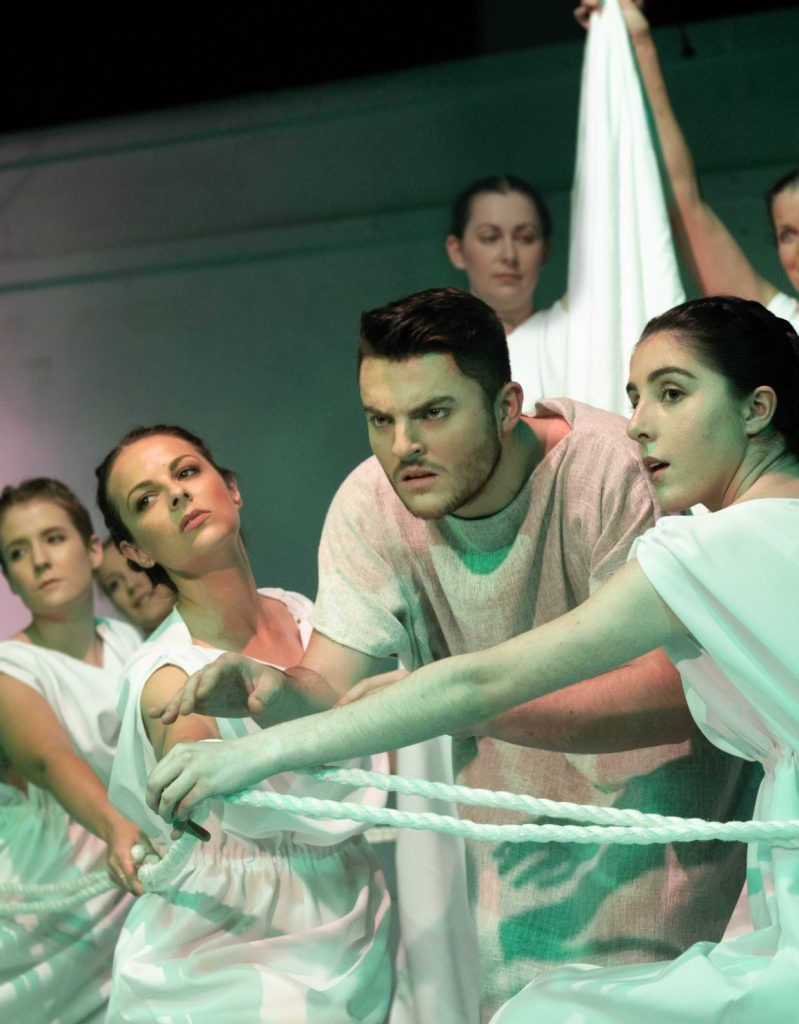
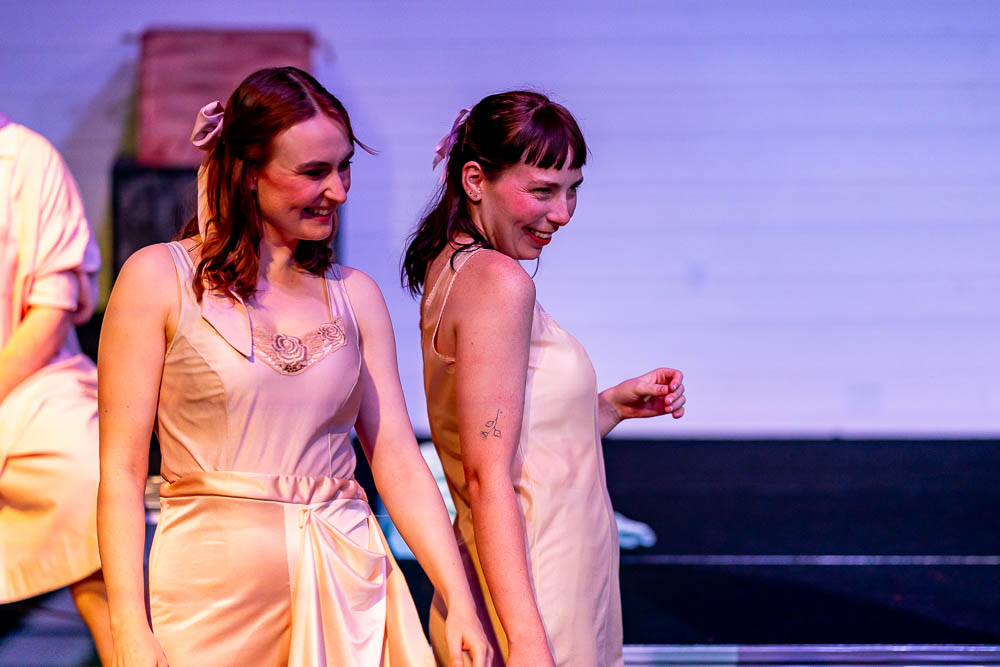


Having attended this production, I concur with this informed and perceptive in every respect. The best commentary in my 77 years of theatre involvement.